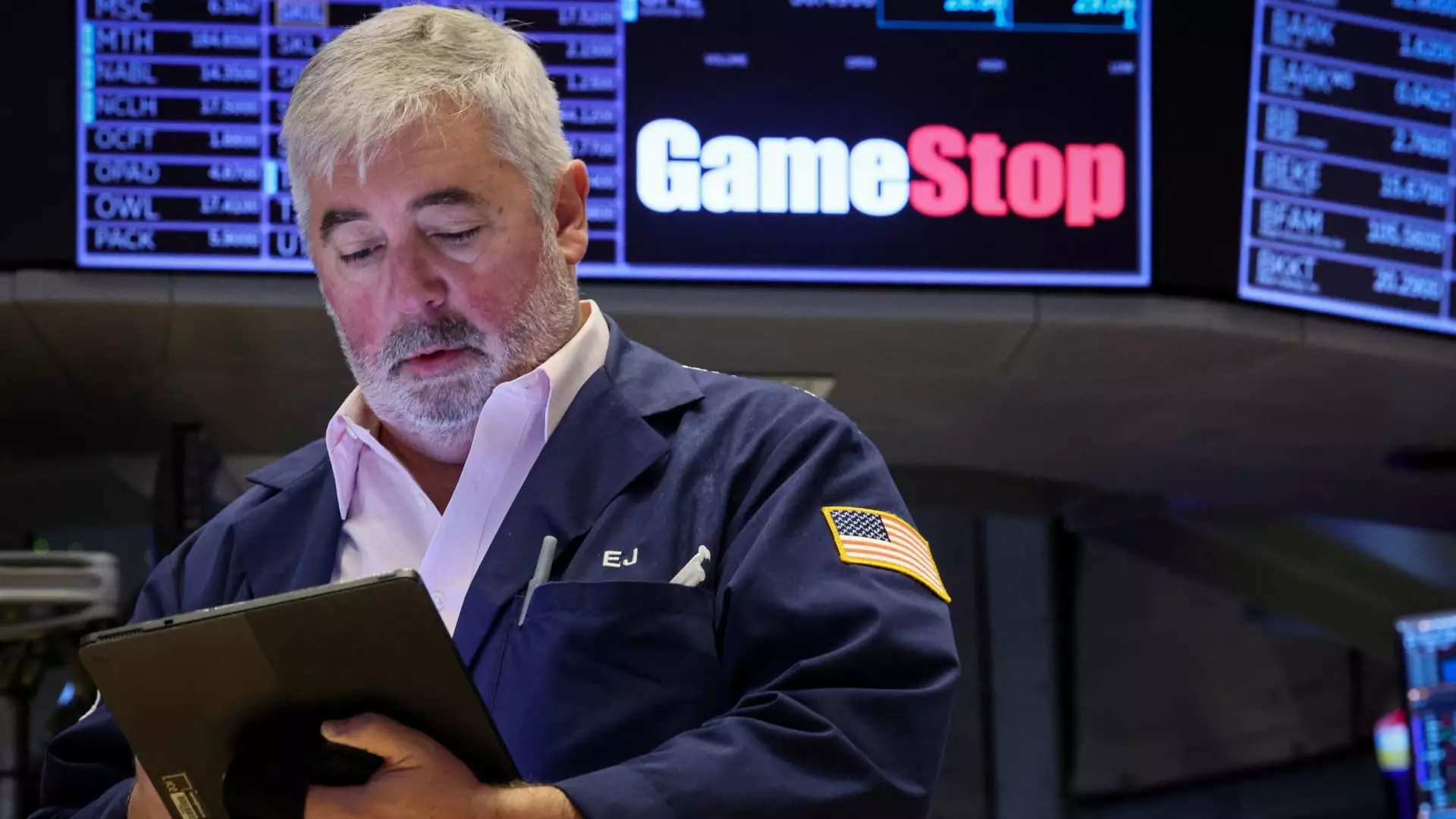In the ever-volatile stock market, GameStop has become synonymous with the phrase “meme stock.” The video game retailer’s recent decision to pivot into Bitcoin by raising a staggering $1.3 billion through convertible notes has sent shivers down the spine of investors. Just one day after a notable rally, GameStop’s stock price plummeted by over 15%. Investors must ask: What is the rationale behind a traditional retail business immersing itself in the cryptocurrency craze, especially when the bubble appears ready to burst?
The essence of the decision seems to mirror the audacious move made by MicroStrategy. However, emulating a wildly different context could prove detrimental for GameStop. Analysts—especially those like Wedbush’s Michael Pachter—are skeptical, predicting that shareholders may face a grim reality as the hype fades and the stock drifts lower prior to the debt issuance. The inherent uncertainty surrounding a corporate transformation into cryptocurrency is alarming, as it distracts from GameStop’s core retail operations.
A Risky Bet on a Corporate Future
GameStop’s management has decided to bet on Bitcoin at a time when the market exhibits extreme volatility and uncertainty. This raises the question of whether the company is using its corporate resources effectively. Funding the purchase of Bitcoin with debt may offer short-term liquidity, but the long-term implications could potentially destabilize the company’s financial foundation. With GameStop’s valuation soaring to $12.7 billion—twice that of their anticipated cash balance—it’s difficult to justify such a high price tag for a company with oscillating business fundamentals.
Moreover, there is a genuine fear that GameStop’s attempt to ride the cryptocurrency wave might lead to catastrophic losses. If Bitcoin’s price tumbles—as it has done repeatedly before—GameStop could find itself unable to recover, and investors should reconsider their trust in a brand that was once the epitome of retail optimism.
Caught in a Cycle of Speculation
The underlying issue here is a cyclical phenomenon of speculative trading that often ignores fundamental metrics. GameStop’s significant movement over the last few weeks indicates that many investors still believe in the meme stock narrative, but clinging to this narrative in light of such drastic shifts in corporate strategy seems reckless. Transforming a gaming retail operation into a potential cryptocurrency investment vehicle could lead to disillusionment among shareholders if the anticipated growth fails to materialize.
Furthermore, despite Pachter’s concerns regarding GameStop’s elevated cash-to-stock ratio, the company remains steadfast in capitalizing on existing hype. This is concerning, especially given the historical precedent of over-leveraging in pursuit of unsustainable growth.
The pursuit of Bitcoin could easily backfire, leading GameStop into a financial pitfall akin to other failed investments in the tech boom of the early 2000s. As the market’s exuberance begins to wane, GameStop must navigate these turbulent waters carefully, or it could see its once-cherished brand crumble under the chaos of its own ambition.

